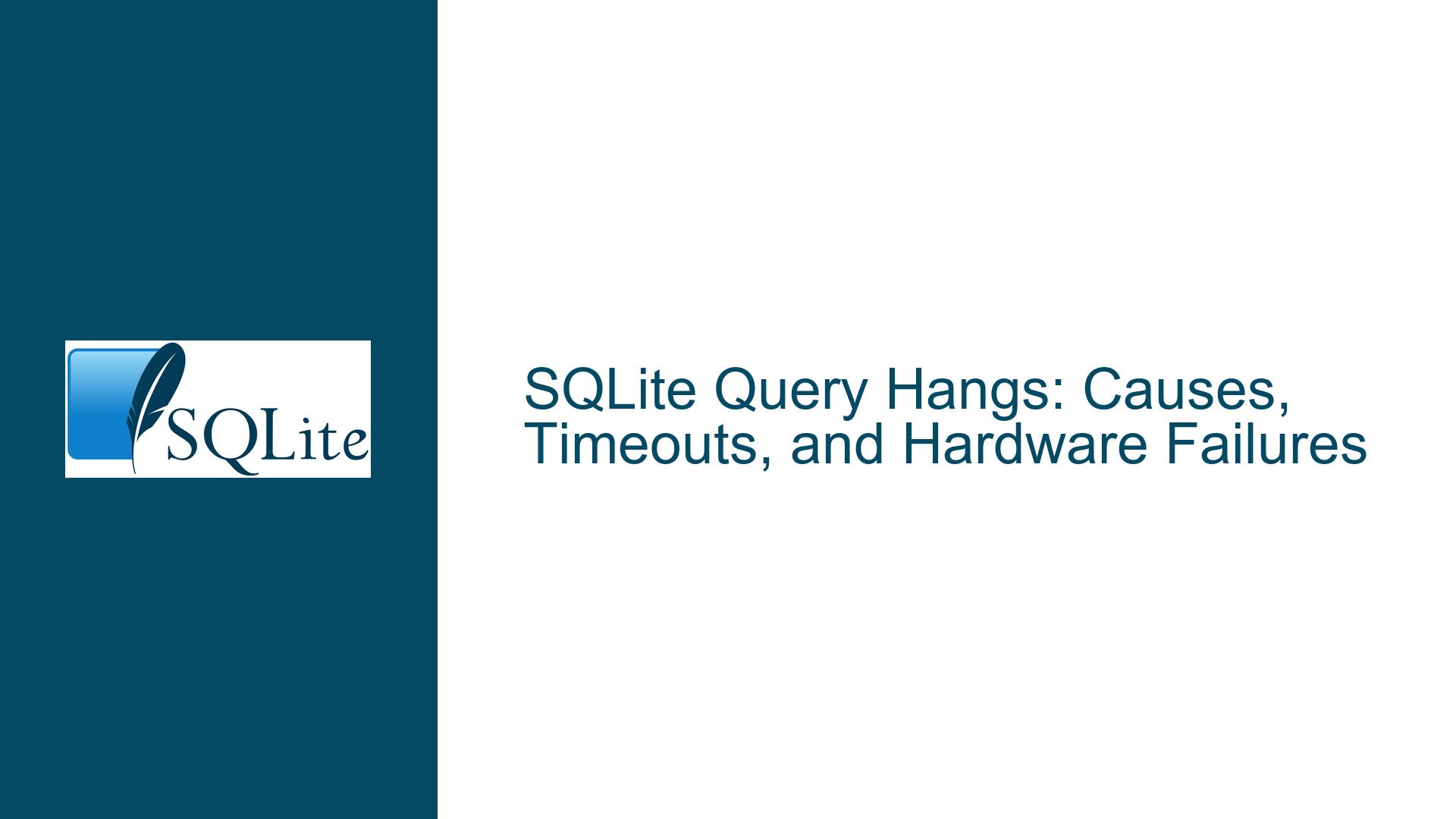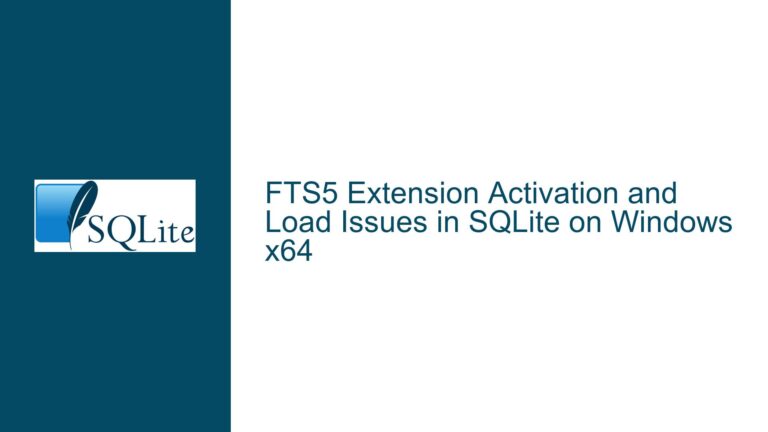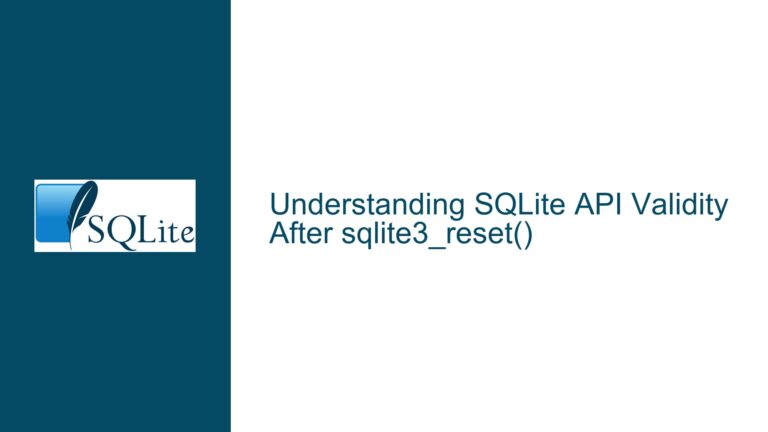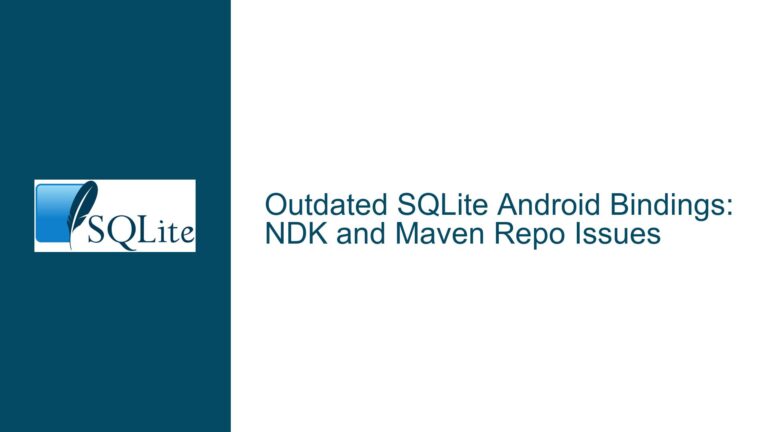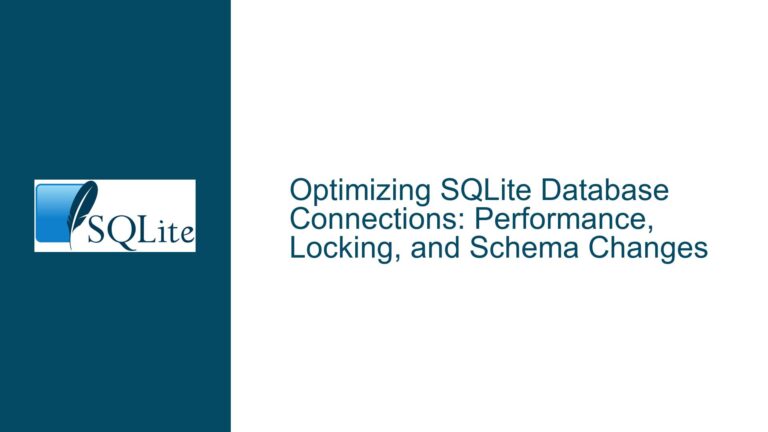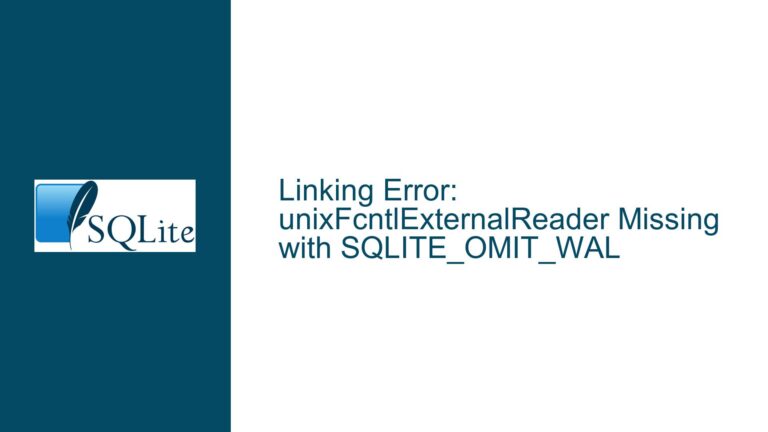SQLite Query Hangs: Causes, Timeouts, and Hardware Failures
Infinite Loops and Recursive Queries in SQLite
SQLite is a robust and lightweight database engine, but like any software, it is not immune to certain edge cases that can cause queries to hang or become unresponsive. One such edge case is the creation of an infinite loop within a query. This can occur when using recursive Common Table Expressions (CTEs) in SQLite. A recursive CTE is a powerful feature that allows a query to reference itself, enabling operations like hierarchical data traversal or iterative calculations. However, if the termination condition for the recursion is not properly defined, the query can enter an infinite loop, consuming resources indefinitely.
For example, consider the following recursive CTE:
WITH RECURSIVE c(x) AS (VALUES(1) UNION ALL SELECT x+1 FROM c)
SELECT x FROM c WHERE x<0;
In this query, the recursive part SELECT x+1 FROM c continues to generate rows indefinitely because the condition x<0 is never satisfied. The query will keep running, incrementing x until it is manually interrupted or the system runs out of resources.
While this example is contrived, it illustrates the importance of ensuring that recursive queries have a well-defined termination condition. In practice, most applications use simple CRUD (Create, Read, Update, Delete) operations that do not involve recursive queries. However, if your application does use recursive CTEs, it is crucial to rigorously test them to ensure they terminate as expected.
Lock Contention and Access Starvation in SQLite
Another potential cause of query hangs in SQLite is lock contention, which can lead to access starvation. SQLite uses a file-based locking mechanism to manage concurrent access to the database. This mechanism ensures that only one writer can operate on the database at a time, while multiple readers can access the database simultaneously. However, this locking mechanism can sometimes lead to situations where two or more processes are waiting for each other to release locks, resulting in a deadlock.
For example, consider a scenario where Process A holds a write lock and is waiting to acquire a read lock, while Process B holds a read lock and is waiting to acquire a write lock. In this case, both processes are stuck waiting for each other, and neither can proceed. This situation is known as access starvation and can cause queries to hang indefinitely.
SQLite provides mechanisms to mitigate lock contention, such as timeouts for acquiring locks. The SQLITE_BUSY error is returned when a process is unable to acquire a lock within the specified timeout period. Applications can handle this error by retrying the operation after a short delay or by implementing a more sophisticated locking strategy.
However, lock contention is not the only cause of access starvation. In some cases, hardware issues or operating system bugs can interfere with SQLite’s locking mechanism, causing queries to hang. For example, if the underlying file system does not properly support file locking, SQLite may not be able to acquire or release locks as expected, leading to unpredictable behavior.
Handling Query Timeouts and Hardware Failures in SQLite
To prevent queries from hanging indefinitely, SQLite provides several mechanisms for setting timeouts and interrupting long-running queries. One such mechanism is the sqlite3_interrupt() function, which can be used to interrupt a query that has been running for too long. This function sends an interrupt signal to the SQLite database connection, causing any currently executing query to abort and return an error.
Implementing a timeout mechanism using sqlite3_interrupt() typically involves starting a timer in a separate thread. If the timer expires before the query completes, the application can call sqlite3_interrupt() to stop the query. This approach is particularly useful for preventing infinite loops in recursive queries or for handling queries that may take an unexpectedly long time to complete due to large data sets or complex joins.
Another mechanism for handling query timeouts is the SQLite progress handler. The progress handler is a callback function that is invoked periodically during query execution. The application can use this callback to check the elapsed time and decide whether to continue executing the query or to abort it. If the progress handler returns a non-zero value, SQLite will abort the query and return an error.
While these mechanisms are effective for handling software-related issues, they may not be sufficient for dealing with hardware failures. For example, if a disk drive fails or a connection inside the computer comes loose, the entire system may become unresponsive. In such cases, the computer may freeze, preventing any further instructions from being executed, including calls to sqlite3_interrupt() or the progress handler.
However, not all hardware failures will cause the system to freeze. For example, if the database is stored on a non-boot drive that experiences a hardware failure, SQLite may return an SQLITE_IOERR error instead of hanging. This error indicates that an I/O operation has failed, and the application can handle it by logging the error, notifying the user, or attempting to recover from the failure.
In summary, while SQLite is generally reliable and efficient, there are several factors that can cause queries to hang or become unresponsive. These include infinite loops in recursive queries, lock contention leading to access starvation, and hardware failures. By understanding these potential issues and implementing appropriate timeout and error handling mechanisms, developers can ensure that their applications remain robust and responsive even in the face of unexpected challenges.
